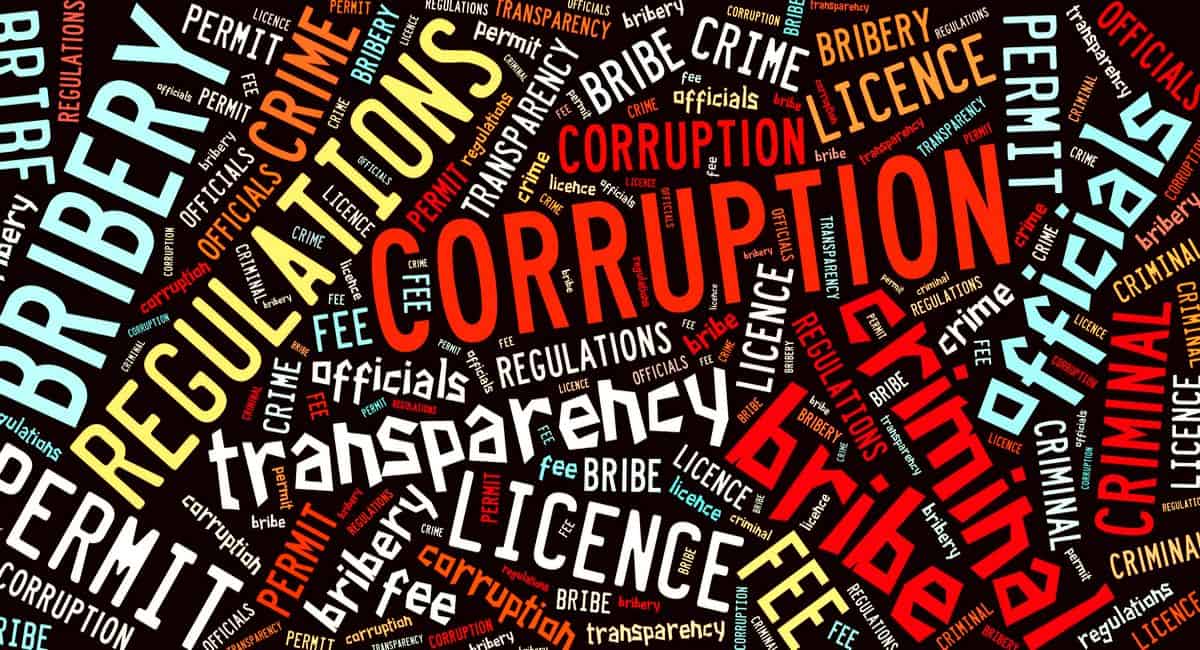The Urgency of Redefinition of Offense Formulation of Corruption in The Law on The Eradication of Corruption
Main Article Content
Abstract
This research aims to analyse corruption law in Indonesia, especially in the form of offense formulation of corruption in the law on the eradication of corruption. This study used mixed legal method, namely descriptive qualitative method and normative juridical method. This research found that corruption in Indonesia still doing as bussiness as usual. Moreover, in the offense formulation of corruption eradication, there are quite several ambiguous and multi-interpretative norms, that can be interpreted widely by the judge. This condition is very horrible and terrible. In connection with the above conclusions, then there are some things that can be suggested by the authors and are expected to be used as material for consideration for parties related to this research, the government should provide clear and certain offense formulation of corruption and the judges may not interpret the formulation of corruption offenses with the aim of reducing or alleviating the punishment of corruptors.
Article Details
All writings published in this journal are personal views of the authors and do not represent the views of this journal and the author's affiliated institutions. Author(s) are retain the copyrights of the Article. However, before publishing, it is required to obtain written confirmation from Author(s) in order to ensure the originality (Author Statement of Originality). The statement is to be signed by at least one of the authors who have obtained the assent of the co-author(s) where applicable.This work licensed under a Creative Commons Attribution-ShareAlike 4.0 International (CC BY-SA 4.0)
References
Al-Fatih, S. (2018). Darus as an Anti-Corruption Education. Asia Pacific Fraud Journal, 3(1), 117–123. https://doi.org/10.21532/apfj.001.18.03.01.14
Cahyani, T. D., & Al-Fatih, S. (2020). Peran Muhammadiyah dalam Pencegahan dan Pemberantasan Tindak Pidana Korupsi di Kota Batu. Justitia Jurnal Hukum, 4(2), 117–123. https://doi.org/10.21532/apfj.001.18.03.01.14.Volume
Erdianti, R. N., & Al-Fatih, S. (2019). Fostering as an Alternative Sanction for Juveniles in the Perspective of Child Protection in Indonesia. JILS (Journal of Indonesian Legal Studies), 4(1), 119–128. https://doi.org/10.15294/JILS.V4I01.29315
Haris, & Al-Fatih, S. (2020). School of Intuition as An Education for Child to Prevent Corruption in Indonesia. TEST Engineering & Management, 83, 11884–11892.
Indrayana, D. (2016). Jangan Bunuh KPK. Malang: Intrans Publishing.
Ismaidar, I., & Yudi, P. (2019). Kajian Hukum dalam Penerapan Undang-Undang Tentang Pencucian Uang dalam Rangka Pemberantasan Tindak Pidana Korupsi di Indonesia Berbasis Nilai Keadilan. JURNAL JUSTIQA, 1(1), 17-28.
Kartono, K. (2012). Patologi Sosial. Jakarta: Raja Grafindo Persada.
Kompas. (2017). "Putusan MK dalam Penegakan Hukum Korupsi". Retrieved August 31, 2018, from Kompas website: https://nasional.kompas.com/read/2017/02/02/20153701/putusan.mk.dalam.penegakan.hukum.korupsi
Lubis, E. Z. (2018). Dampak Melawan Hukum Dalam Tindak Pidana Korupsi. Jurnal Administrasi Publik: Public Administration Journal, 7(2), 107-116. https://doi.org/10.31289/jap.v7i2.1332
Lubis, T. M. (2011). Melawan Korupsi dengan Pembatasan Transaksi Tunai. Malang: Fakultas Hukum Universitas Brawijaya.
Ma’ruf, M. A., Santoso, G. A., & Mufidah, A. M. (2019). Peran Mahasiswa dalam Gerakan Anti Korupsi. UNES Law Review, 2(2), 205-215.
Marzuki, P. M. (2014). Penelitian Hukum. Jakarta: Kencana Prenada Media Group.
Marzuki, P. M. (2017). Penelitian Hukum: Edisi Revisi. Jakarta: Kencana Prenada Media Group.
Mashabi, S. (2020). "Indeks Persepsi Korupsi Indonesia pada 2019 Naik Jadi 40". Retrieved January 9, 2021, from Kompas website: https://nasional.kompas.com/read/2020/01/23/16565951/indeks-persepsi-korupsi-indonesia-pada-2019-naik-jadi-40?page=all.
Revida, E. (2003). Korupsi di Indonesia: Masalah dan Solusinya. Medan: FISIP USU.
Saifulloh, P. P. (2017). Peran Perguruan Tinggi dalam Menumbuhkan Budaya Anti Korupsi di Indonesia. Jurnal Hukum & Pembangunan, 47(4), 459-476.
Santoso, T., & Zulfa, E. A. (2005). Kriminologi. Bandung: Raja Grafindo Persada.
Soekanto, S. (2018). Penelitian Hukum Normatif: Suatu Tinjauan Singkat. Jakarta: Rajawali Press.
Suryani, I. (2015). Penanaman Nilai-Nilai Anti Korupsi di Lembaga Pendidikan Perguruan Tinggi Sebagai Upaya Preventif Pencegahan Korupsi. Jurnal Visi Komunikasi, 14(2), 285-301.
Syamsuddin, A. (2011). Tindak Pidana Khusus. Jakarta: Sinar Grafika.
